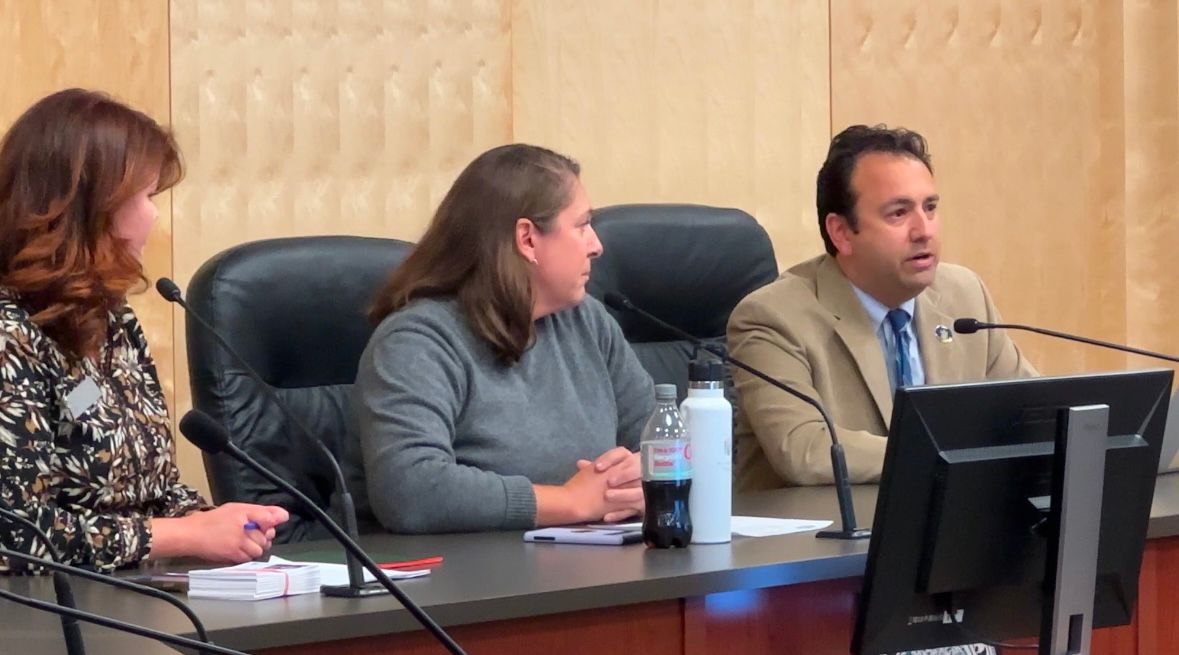AUGUSTA — Following the August spill of more than 1,000 gallons of PFAS firefighting foam in Brunswick, lawmakers are preparing bills to address the problem statewide.
Rep. Dan Ankeles (D-Brunswick) is sponsoring three bills — one to require an inventory of public and private quantities of the foam over five gallons; one to create a take-back program similar to hazardous waste drop offs; and a third to prohibit the Midcoast Regional Redevelopment Authority from having any of the product on their properties.
“If you do this you ensure what happened in Brunswick doesn’t happen in other parts of the state,” he said.
In August, 1,450 gallons of PFAS-laden foam, which mixed with 50,000 gallons of water, accidentally released from a hangar at Brunswick Executive Airport.
The Department of Environmental Protection hired a company to clean up the foam and for weeks, tested local residential wells to look for contamination. The department also warned against eating fish caught in four local ponds and advised the public not to touch the foam.
Ten days after the accident, Brunswick residents expressed anger and frustration with the situation, saying they were concerned about the safety of the air and water and wondered who would pay for the cleanup.
Others asked about the dangers of PFAS, a group of man-made chemicals found in many consumer products. They have been linked to increases in cholesterol levels, decreases in birth weight, lower antibody response to some vaccines and kidney cancer, according to the Maine Center for Disease Control and Prevention.
Ankeles is also working with Senate President Mattie Daughtry (D-Brunswick) on a fourth bill to change the way the redevelopment authority is structured.
“How can we make sure there’s not only accountability but that we’re also making sure Brunswick Landing is set up for success,” Daughtry said. “It was really clear not only to the delegation but to our constituents that we had a complete breakdown and failure in that moment.”

Ankeles said the bill to require the fire marshal’s office to conduct an inventory is necessary because no one knows exactly how much of the foam is in fire stations or at industrial sites across the state. The end goal is to encourage those entities to switch to other products that aren’t as potentially hazardous to human health.
When it comes to the take-back program, Ankeles said one challenge is that it’s difficult to safely dispose of the firefighting foam. The foam captured after the Brunswick spill was shipped to Texas, where it was incinerated.
“That is not good for the people of Texas,” Ankeles said. “We need to find a way to get these out of people’s communities, but we need to be mindful of what destruction looks like.”
He said the most controversial of the three is likely to be the one to require the redevelopment authority in Brunswick to remove all of the firefighting foam. While the spill occurred in Hangar 4, similar fire suppression systems continue to be active in hangars five, six and seven, he said.
And while the town fire department is working with the redevelopment authority to make sure they are in compliance with regulations, it’s no guarantee, Ankeles said.
“Even compliant systems can fail, and the community has made it clear they don’t want this stuff,” he said.
The redevelopment authority, which took over the former Brunswick Naval Air Station in 2011, is charged with managing the properties and attracting new businesses.
The authority has created 2,800 jobs, attracted 126 businesses and sold off 45 buildings to private developers, according to its website.
Now known as Brunswick Landing, the former base hosts an airport, aerospace companies, biotech labs, university space and training facilities for Bath Iron Works, among many other businesses.
Daughtry said while she and Ankeles want to directly address the issue in Brunswick, they will push for action on the firefighting foam statewide.
“It’s not just Brunswick Landing that’s dealing with this, our fire stations across the state have dealt with this and we’ve heard about the health ramifications of many Mainers’ working with this substance,” she said.



